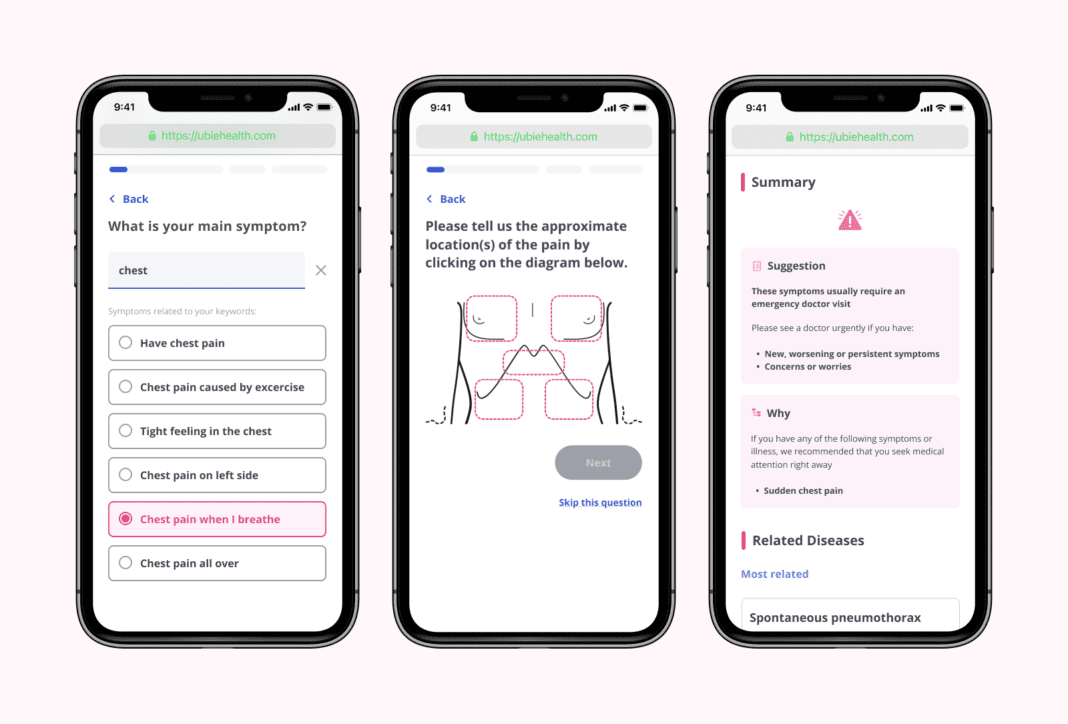Ubie, Inc., a healthcare AI startup with the mission “To develop a healthcare guide for everyone,” has launched in the United States an “AI-powered symptom checker” ( that allows users to enter symptoms and discover related diseases.
Ubie, founded in Japan in 2017 by a physician and an engineer, is now based in Tokyo and Singapore. The company has seen rapid growth, ranked #1 in the 2021 “LinkedIn Top Startups.” (*) Ubie’s first product offering, the “AI-powered patient intake,” is a service that streamlines the medical interview process for medical institutions. This service is based on a database of approximately 50,000 medical papers from around the world, compiled by more than 50 active physicians. The service, introduced at over 700 medical institutions worldwide, continues to improve the operational efficiency of medical institutions.
Ubie’s second offering “AI-powered symptom checker” uses the same database as the AI-powered patient intake service and evolves daily to reflect clinical diagnosis data from physicians worldwide. Its AI selects the most appropriate questions from approximately 3,500 question data types. After users answer around 20 questions about their symptoms, they can discover related diseases and more detailed information. The system supports users’ decision-making to access appropriate medical care, such as an optimal medical department to consult. The number of diseases in the service exceeds 1,100, covering a wide range of medical departments. The service is free, without the need for registration through the website.
Ubie is offering the U.S. version as a new service with customized AI algorithms for questions related to symptoms and disease names, taking regional characteristics such as disease trends into account.
Since the company was founded, Ubie has set its sights on overseas expansion and established an office in Singapore in 2020. Now, Ubie has decided to provide a U.S. version of the service after the encouraging results from medical institutions and users in both Japan and Singapore.
Ubie Co-founder and CEO Yoshinori Abe, MD, said: “During my residency at the hospital, I had a patient who had colorectal cancer symptoms that were left untreated for two years. When the patient came to see me, the cancer was already at stage 4 (an advanced stage), and the doctors had no way to help the patient. With today’s advanced medical technology in Japan, the survival rate would be about 90% if the patient had visited a medical institution when the patient noticed the abnormality.”
He concluded “This experience led me to leave the medical field and founded Ubie. Our goal is to use technology to guide people to appropriate medical care and increase the average life expectancy worldwide. I am confident that Ubie, born of Japan’s advanced medical technology, will benefit the health of the American people.”
Ubie is a Japanese healthtech startup founded by a medical doctor and an engineer in 2017. Using AI as its core technology, the company develops and provides an AI-powered patient questionnaire that guides patients from symptoms to appropriate medical care, and improves operational efficiency in the medical field. It is promoting the creation of a society in which anyone can access medical care that suits them best.
